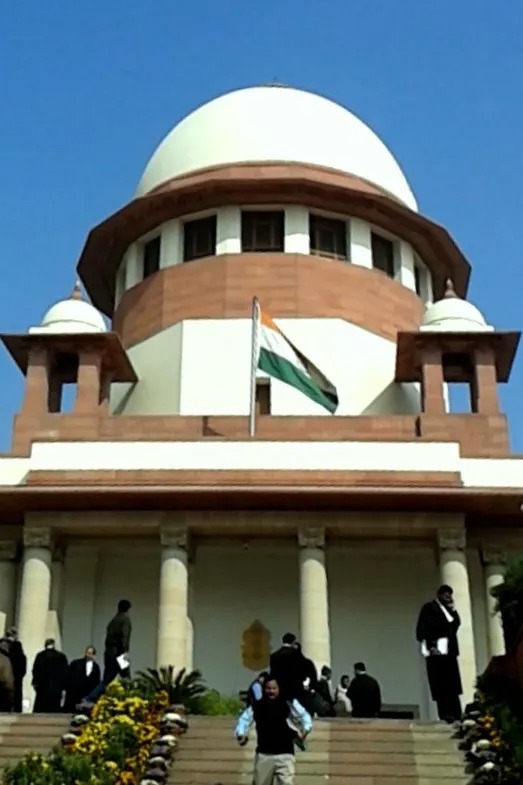D.Y. Chandrachud, J.@mdashA suit for eviction was filed by the respondent against the petitioner in 1983 on the ground of default in the payment of rent. The petitioner is a tenant of a shop. Shop No. 5 situated within the precincts of property belonging to the respondent Trust. In the plaint before the Trial Court the respondent had averred that the petitioner was a monthly tenant in respect of the suit premises, each month of the tenancy commencing according to the Marathi calendar on Shukla 1 (Pratipada).
2. According to the respondent, the petitioner had defaulted in the payment of rent from Kartik Shake 1902 and was in arrears of rent for a period of 26 months totally amounting to Rs. 286/-. The respondent stated that by its notice dated 29th November, 1982 the tenancy had been terminated from Margashirsha Shukla 1 Shake 1904. The petitioner had according to the respondent neither paid the arrears nor vacated the premises. The defence which was set up in the written statement was that the tenancy in question was not a monthly tenancy, but a yearly tenancy and that the rent was being paid annually according to the Marathi calender. The petitioner contended that within a month of the receipt of the notice of demand, he had remitted an amount of Rs. 200/- to the respondent.
3. Issues were framed and evidence was adduced by the parties. The 3rd Additional Small Causes Judge, Pune, by a judgment dates 19th November, 1985 dismissed the suit for eviction holding that the rent receipts which have been produced on the record (Exhibits 23 to 26) would show that the calculation has been made yearwise according to the Marathi year. Hence, according to the Trial Court since the tenancy was a yearly tenancy, it had not been validly terminated by a notice which styled the tenancy as a monthly tenancy. The judgment of the Trial Court was reversed in appeal by a judgment and order dated 17th November, 1989 of the 7th Additional District Judge, Pune. In reversing the judgment of the learned Trial Judge, the Appellate Court held that the terms of the agreement which were contained on the reverse of the rent receipts made it amply clear that what was in issue was a monthly tenancy. The Appellate Court held that the mode of recovery of rent would not change the original terms of lease between the parties; that parties may agree that the rent may be recovered periodically at intervals of varying duration. The Appellate Court has also laid emphasis on the circumstance that in the notice dated 29th November, 1982 the respondent had clearly mentioned that the tenancy was a monthly tenancy. The petitioner had not disputed the aforesaid statement, but on the contrary had made part payment of an amount of Rs. 200/- after the receipt of the notice. Moreover, it appeared from the written statement of the petitioner that there was in fact a written agreement of lease but it had not been produced on the record by the petitioner.
4. Counsel appearing on behalf of the petitioner has challenged the findings which have been arrived at by the Additional District Judge, Pune and supported the view which was taken by the Trial Judge. Counsel urged that if in fact this was a yearly tenancy, the termination was invalid in which case the suit was not maintainable.
5. The Record and proceedings are before the Court and with the assistance of Counsel I have perused the rent receipts at Exhibits 23 to 26 which were produced and marked in evidence. The terms and conditions contained on the reverse of the rent receipts make it abundantly clear that the tenancy was in fact a monthly tenancy. The first condition stipulates that the tenant must pay the rent in advance for every month. The third Condition states that the tenant would have to pay the rent for the entire month even if the premises were vacated during the course of the month. The fourth Condition states that if the premises are retained beyond the stipulated period, a notice of atleast one month must be furnished. The learned Additional District Judge has therefore, in my view, correctly come to the conclusion on the basis of the terms and conditions contained in the rent receipts that the tenancy was a monthly tenancy. The learned Trial Judge had laid a considerable degree of emphasis on the circumstance that the rent which has been recovered is for the entire year. Now in so far as this aspect of the matter is concerned, it needs to be emphasised that the intervals at which rent is recovered or paid does not render the tenancy as a tenancy for that interval. The rent may be recovered quarterly, half yearly or yearly, but a tenancy which is a monthly tenancy does not on that count cease to be a monthly tenancy. The principle was enunciated in the following observations of the Supreme Court in
"The tenancy can be from month to month and the recoverability of the rent may not be from month to month and may under the contract, be based on any period say, a quarter or half year or a year. There is nothing, in law to make the month for the period of recovering rent synchronize with the period of the month of the tenancy."
6. Section 106 of the Transfer of Property Act lays down that in the absence of a contract, local law or usage to the contrary, a lease of immovable property for Agricultural or manufacturing purposes shall be deemed to be a lease from year to year, terminable, on the part of either lessor or lessee, by six months'' notice expiring with the end of a year of tenancy; and a lease of immovable property for any other purpose shall be deemed to be a lease from month to month, terminable, either on the part of lessor or lessee, by 15 days'' notice expiring with the end of a month of the tenancy.
7. Mr. Justice B.K. Mukherjea speaking for a Bench of Four learned Judges of the Supreme Court held in
8. In the present case, a faint attempt was made before the Appellate Court to contend that the lease was a manufacturing lease but that has been correctly rejected by the Court. Then there was the circumstance that in response to the notice dated 29th November, 1982 in which the respondent had stated that the tenancy was a monthly tenancy, the petitioner had without raising any protest made a part payment of Rs. 200/- within a period of one month. In the circumstances, both on the basis of the contract between the parties and the conduct to the petitioner himself, the finding which has been arrived at, to the effect that the tenancy was a monthly tenancy is well founded and does not require any interference.
9. The petitioner received the notice of termination dated 29th November, 1982 on 10th December, 1982. Thereafter within a period of one month the petitioner made only a part payment of the total amount which was demanded. The entire amount has admittedly not been paid. A ground for eviction u/s 12(3)(a) of the Bombay Rents Hotel and Lodging House Rates (Control) Act, 1947 was, therefore, clearly made out. The judgment and order of the Additional District Judge, therefore, does not suffer from any infirmity. The petition is accordingly rejected.
10. However, having regard to the facts and circumstances of the case, the petitioner is granted time until 30th April, 2004 to vacate the premises subject to the filing of the usual undertaking in this Court within a period of four weeks from today.
Parties be given a copy of this order duly authenticated by the Sheristedar/Personal Assistant.

